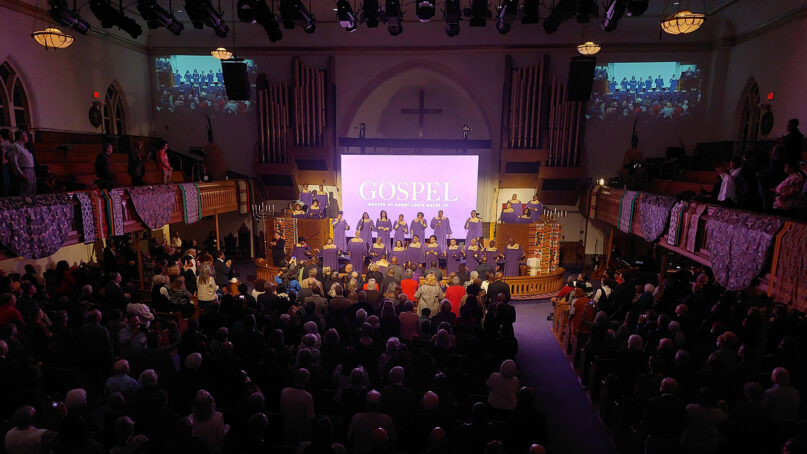WASHINGTON (RNS) —The interplay between song and sermon — and the importance of both in Black churches — is the focus of a new docuseries created by scholar Henry Louis Gates Jr.
“Gospel” premieres on PBS stations on Monday and Tuesday (Feb. 12 and 13) and is preceded by a related concert that premieres this week on Friday on public television.
“Gospel and preaching go hand in hand, flip sides of the manner in which we sound the word of God through these two sublimely majestic art forms,” Gates said in remarks at a late January preview event that showcased clips from two of the four episodes that will air over the two days.
Gates, a Harvard professor known for his “Finding Your Roots” program and creator of the book and docuseries “The Black Church: This Is Our Story, This Is Our Song,” noted that gospel emanates from a variety of styles of music — such as the blues, R&B and soul — but as an overall genre has stood the test of time.
“Gospel is the resonant, living repository of our people’s rich spiritual past,” he told an interracial crowd that gathered at Metropolitan African Methodist Episcopal Church to hear him speak, view the clips and listen to musicians perform hits recorded by Walter Hawkins, Richard Smallwood and The Clark Sisters.
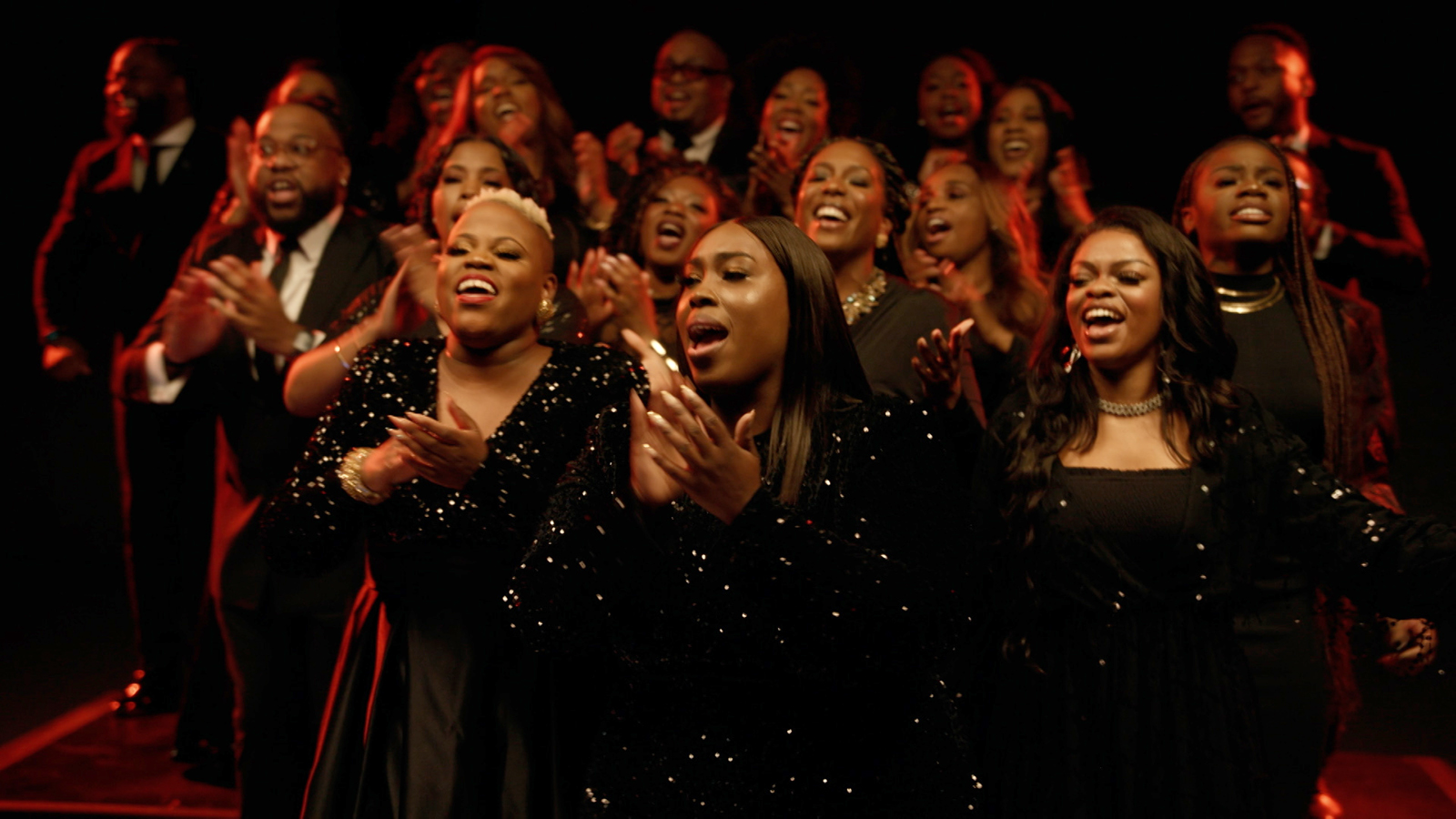
Tyrell Bell and the Belle Singers perform in “Gospel.” (Photo courtesy PBS)
“Musical styles come and go. But one style has remained a constant source of strength, courage and wisdom for over a century: gospel music.”
RELATED: Henry Louis Gates’ new book and TV series distills centuries of Black church history
Friday’s hourlong concert program was filmed at Los Angeles’ Oasis Church, where Gates and gospel artist Erica Campbell host artists who perform gospel songs of yesteryear. Mali Music sings “He’s So Wonderful,” originally recorded by Sam Cooke and the Soul Stirrers, and John Legend sings Thomas A. Dorsey’s “Precious Lord,” originally recorded by Mahalia Jackson.
The series itself dwells on both ministers and the ministry of music, with Gates, other scholars and musicians tracing the history of gospel music from the Great Migration, when African Americans carried the sounds of their home churches with them as they left the segregated South in search of better lives up north.
One of those who moved northward was Dorsey, a Georgia native who settled in Chicago and was known for his blues music. Returning back to church circles, he became such a prolific writer, creating traditional Black gospel with a bluesy style, that he was known as the “father of gospel music.”
Gates’ series notes how some of the music was created in times of personal and national mourning. One of Dorsey’s most famous songs was “Precious Lord,” written in 1932 as he mourned the deaths of his wife and infant son. James Cleveland recorded “Peace Be Still” in the weeks after the 1963 bombing of the Sixteenth Street Baptist Church in Birmingham, Alabama.
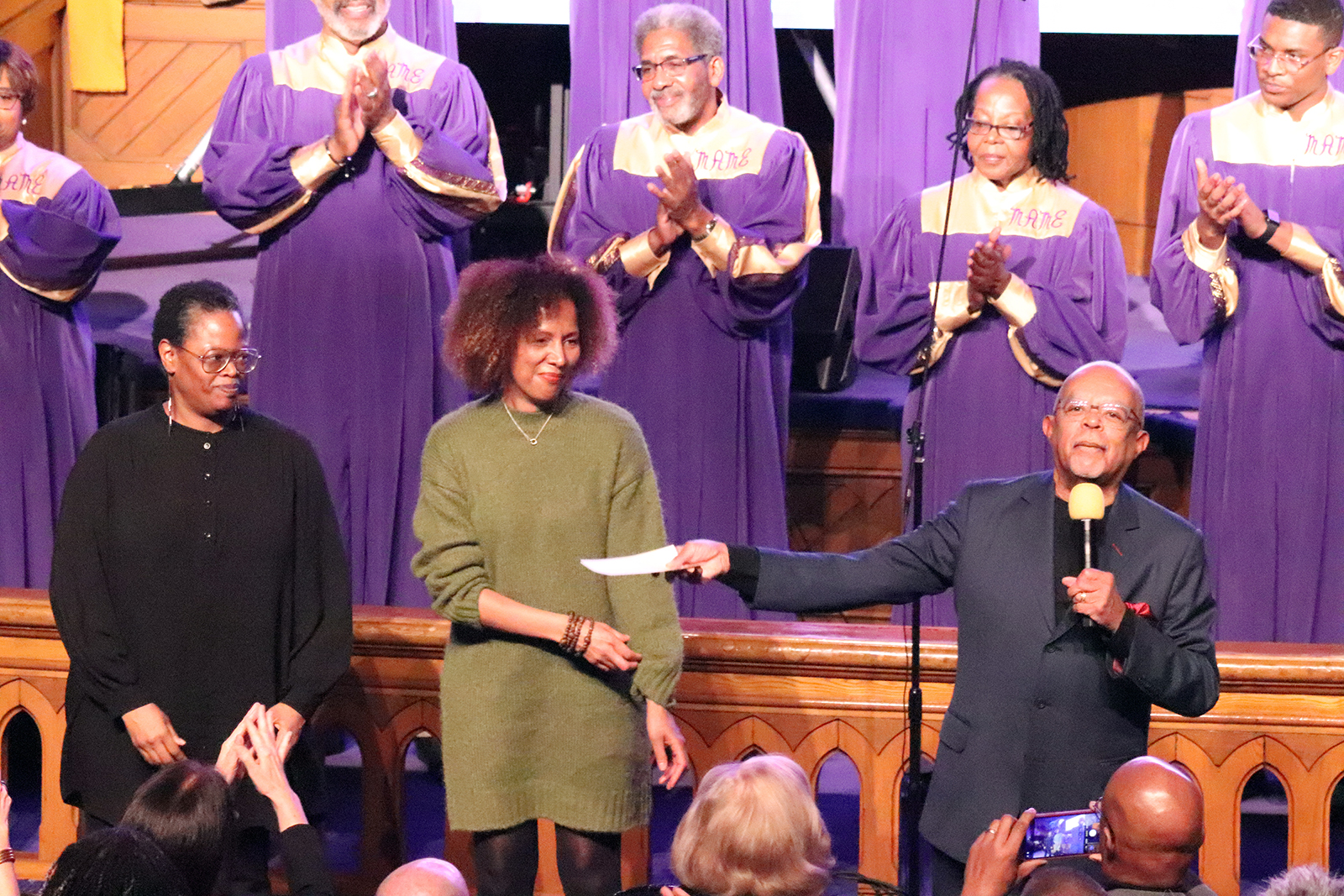
Henry Louis Gates Jr., right, speaks during a “Gospel” preview event at Metropolitan African Methodist Episcopal Church in Washington, D.C., on Jan. 26, 2024. (RNS photo/Adelle M. Banks)
Both songs also demonstrated gospel music’s reach beyond the pews of churches and onto top-selling records. Preachers, too, spread the spoken gospel via records, including the Rev. C.L. Franklin — a Detroit pastor and the father of Aretha Franklin — whose 1953 recording of the sermon “The Eagle Stirreth the Nest” led him to be dubbed “the man with the million-dollar voice.”
The famous minister’s sermon featured whooping, a style of preaching in some Black church circles where vocal and breathing techniques bring the sermon to an emotional conclusion.
“When he got ready to whoop you could feel the crescendo in his voice rise,” his granddaughter Sabrina Owens told Gates. “You knew when it was coming. The organ would start to play and the deacons would stand and the church would stand.”
Aretha Franklin first sang in the choir and then as a soloist at the New Bethel Baptist Church where her father’s famous sermon was recorded — and later returned to a church setting to record “Amazing Grace,” an album that remains the best-selling live gospel album.
The union of preaching and song is evident during a moment in Gates’ series depicting the change in expression on the Rev. Martin Luther King Jr.’s face — from somber to smiling — as Mahalia Jackson sings “Joshua Fit the Battle of Jericho” before he addresses a rally at a Chicago church.
“A voice like this comes only once in a millennium,” King says in the video, about the woman who also sang shortly before he gave his “I Have a Dream” speech at the 1963 March on Washington for Jobs and Freedom.
Gates also reveals the tension within the genre, as some musicians held to music only of faith and others were comfortable far afield from gospel music.
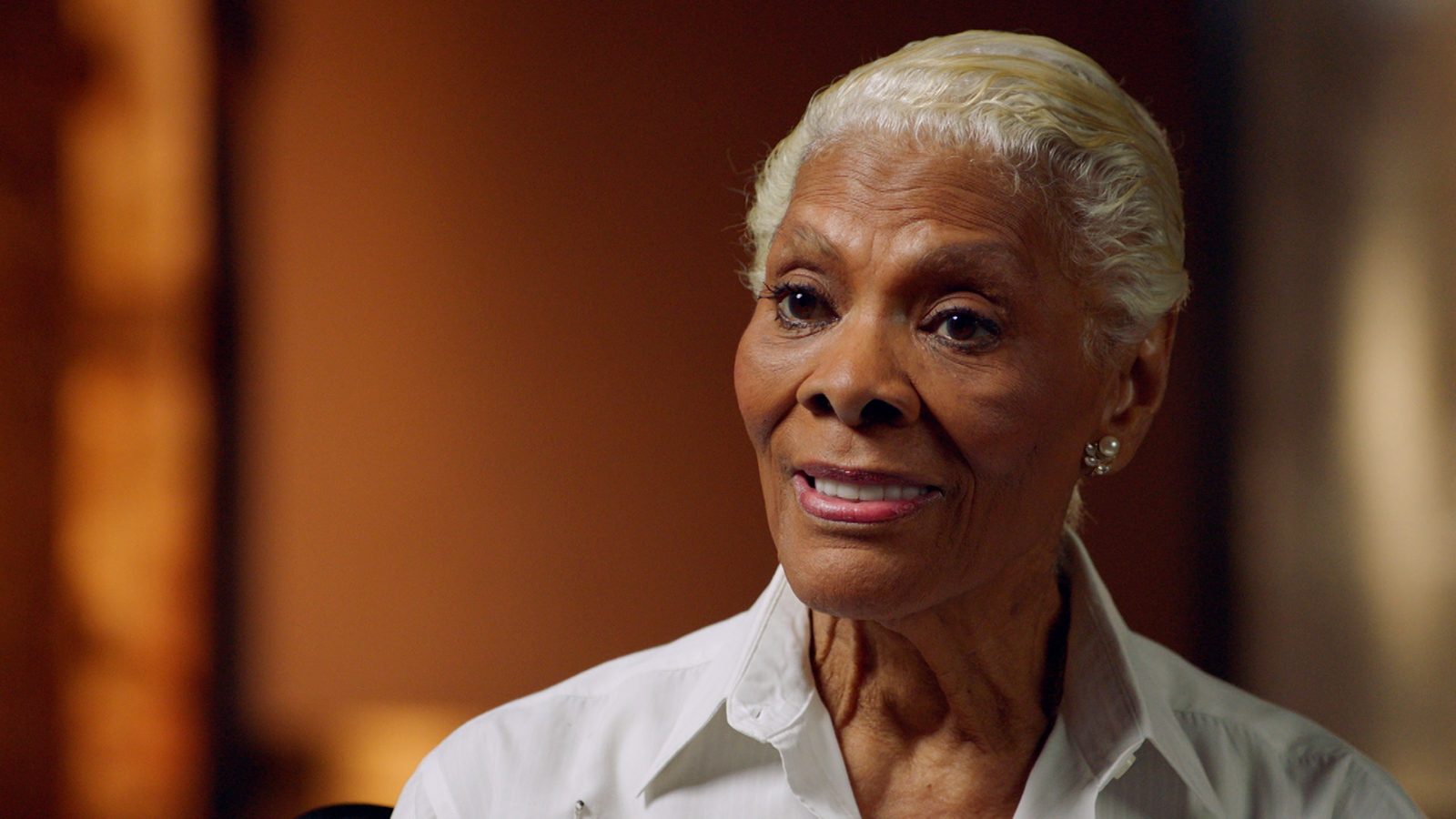
Dionne Warwick in “Gospel.” (Photo courtesy PBS)
Singer Dionne Warwick told Gates that Jackson’s voice was special because “she believed and trusted in God and was not ashamed and would let you know that. She believed every word she was singing and she wanted you to believe it.”
While Jackson declined to sing secular music for record labels, singer and guitarist Sister Rosetta Tharpe played wherever the opportunities were, including big band music.
“There is a 1946 battle between Rosetta Tharpe and Mahalia Jackson,” scholar Gayle Wald of George Washington University says in the docuseries, which shows a poster reading “WAR! DECLARED BATTLE OF MUSIC” featuring the two women’s names. “There were people who were, like, ‘I’m on Team Mahalia’ or ‘I’m on Team Rosetta.’”
Sentiments of acceptance and rejection flowed through the series and the times, with some proclaiming gospel music tinged with other styles was akin to the “devil’s music” or otherwise inappropriate — from Edwin Hawkins’ jazzy “Oh Happy Day,’’ to Andrae Crouch’s bluesy “The Blood Will Never Lose Its Power” to Kirk Franklin’s hip-hop-driven “Stomp.”
The Clark Sisters didn’t let criticism stop them from crossing genres, and they became the bestselling women’s gospel group ever, noted Gates.
Elbernita “Twinkie” Clark described how she added a reggae beat to their hit “You Brought the Sunshine” that led listeners to start dancing.
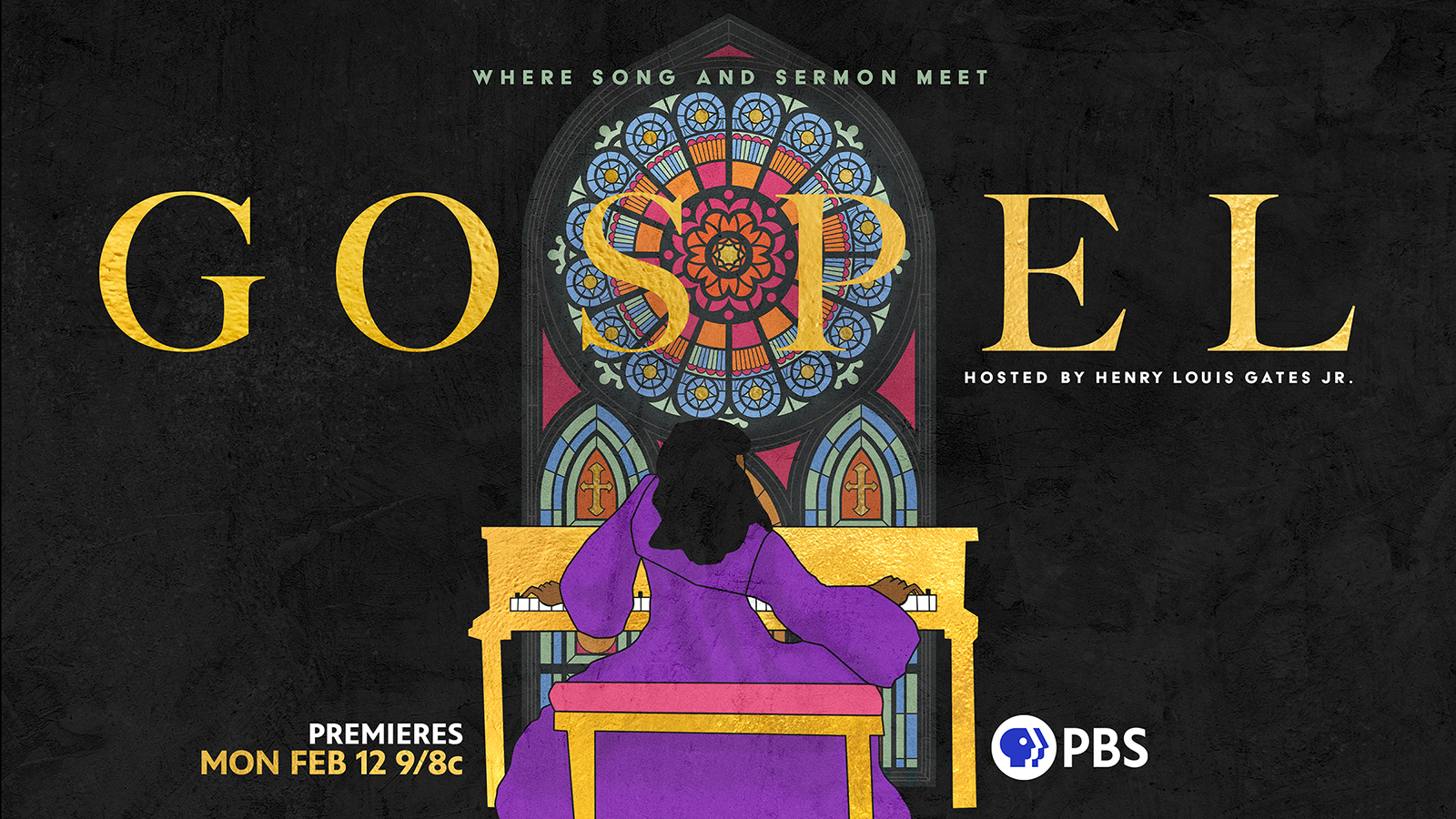
“Gospel” promotional poster. (Image courtesy of PBS)
“It was God’s way of taking us to another level,” she told Gates. “We were reaching people that wouldn’t go to church. Some people gave us their testimony that they used to go to clubs and now they go to church.”
Though the series notes how women — often barred from the pulpit — preached through their music, it highlights how Shirley Caesar eventually did both, first through sermonettes at her concerts and later leading a church in North Carolina where she is still a pastor.
“I would take my experiences and I would put it to music because I knew that, just as sure as we’re sitting here, that somebody else was experiencing some of the things that I was or either things that I’d gone through with,” she told Gates. “That’s my kind of gospel.”
Gates said that’s what he loves about the musical genre rooted in Black churches.
“In the end, we all love gospel music, because it is the sound of hope against hope,” he said at Metropolitan AME. “It is the sound of the triumph of the human spirit over tremendously daunting odds. It is the sound of the gloriously rhythmic harmony of a people making a way out of no way.”
RELATED: Are ministers and musicians allies or rivals?
